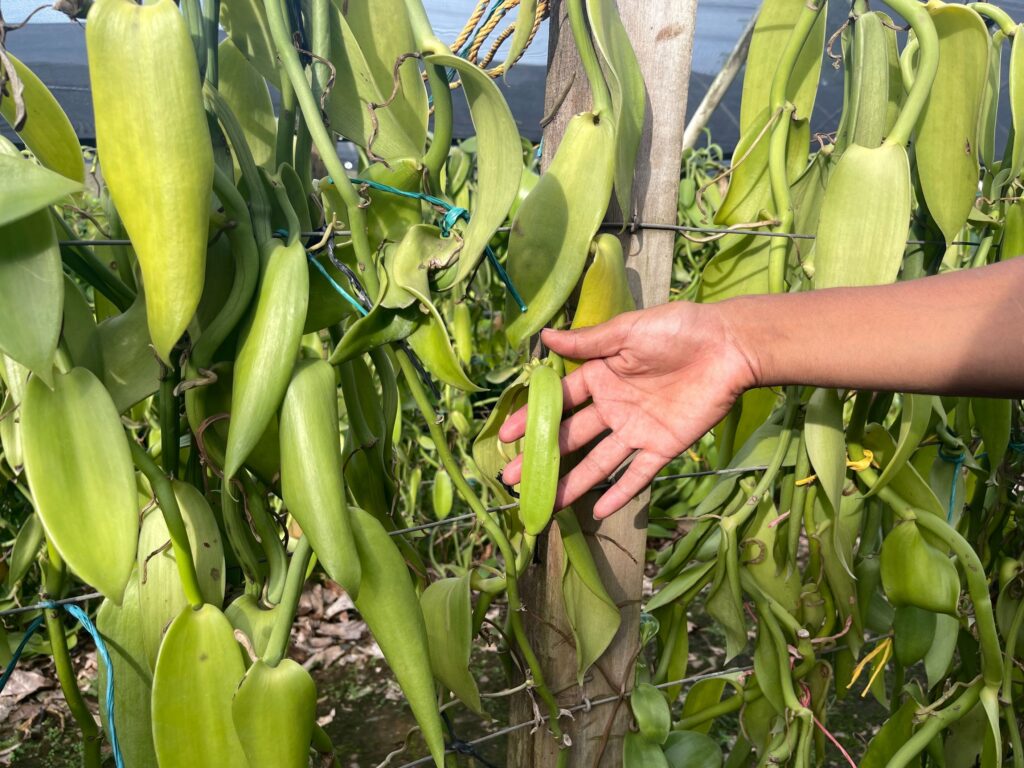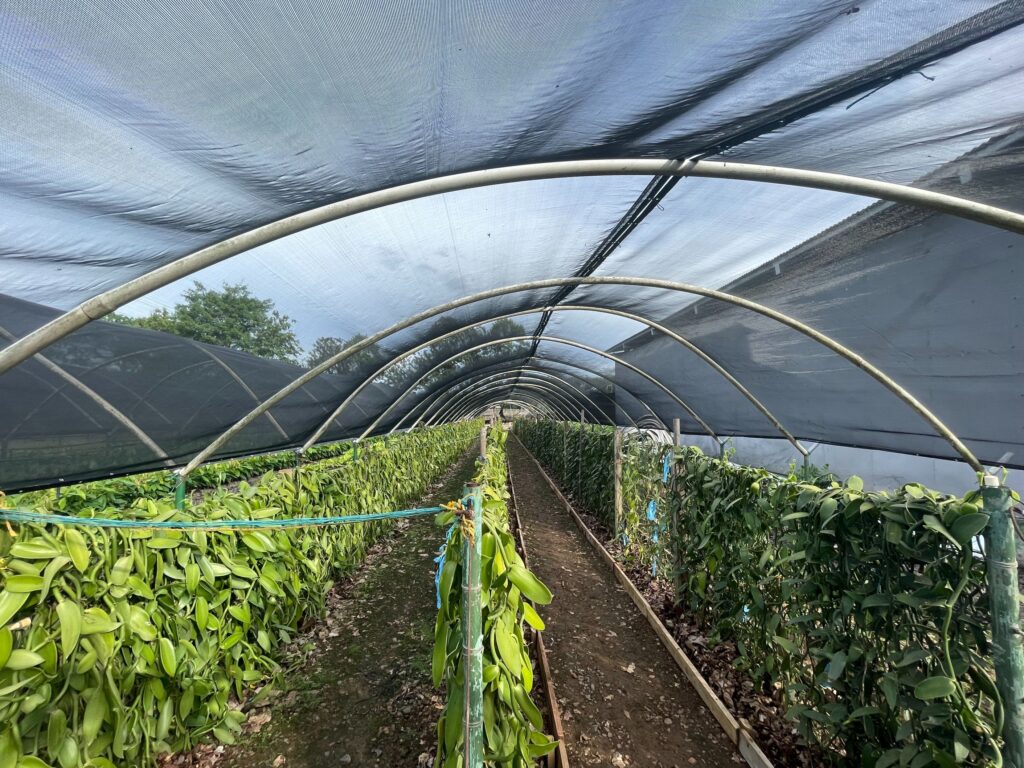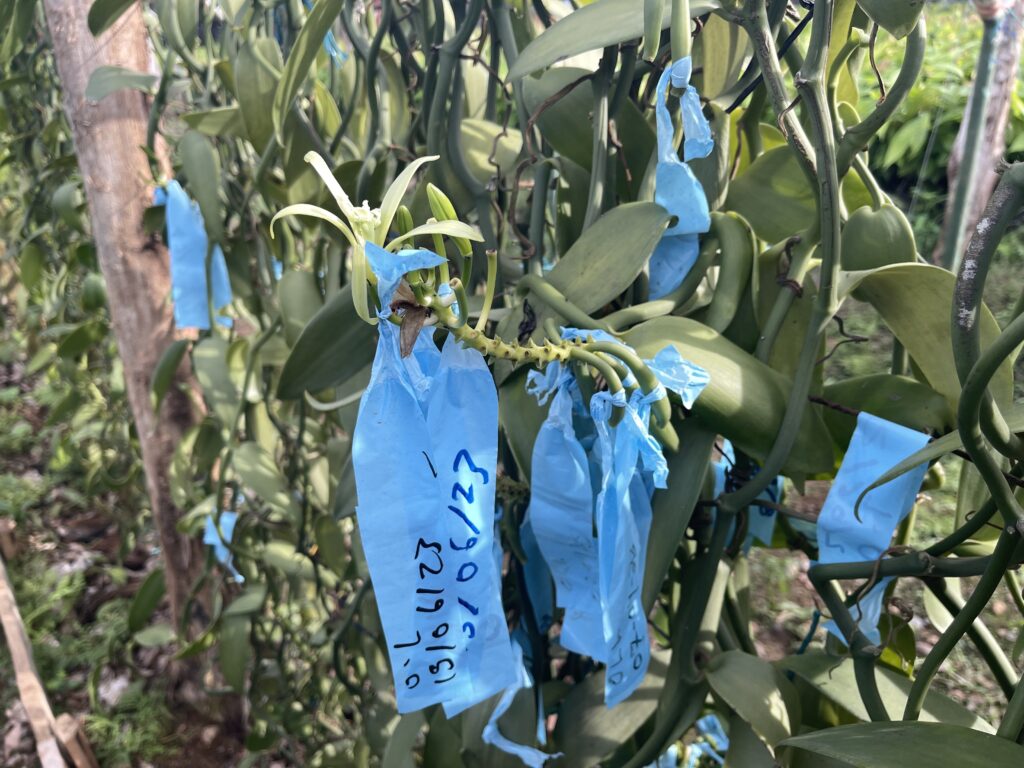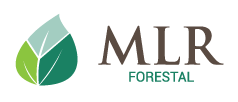News
Vanilla at MLR Forestal: a story of perseverance and innovation

In 2020 MLR Forestal started an experiment with vanilla plants. Now, three years later, this experiment is beginning to yield hopeful results. During these three years, the vanilla nursery was a bit dark with many well-kept plants, but no flowers or fruits.
“That was the problem, that there were no flowers, that is, it had not been pollinated. This was because we had worked with a percentage of shade of 75 percent, but from November 2022 we started making changes and the first was the saran, that is, the nylon net that filters the light in the nursery, which is now 55 percent shade,” explains Marvin Fonseca, nursery area supervisor of MLR Forestal.
Fonseca says that, when the percentage of light varied, the plants began to stress, that is, to wither. “After the stress, the fist flowers appeared. It was very interesting, I did more research and concluded that, in order to have flowers, you must cause a little stress to the plant,” he said.

According to the supervisor, this stress can also be caused by reducing the amount of water supplied to the plant, that is, instead of watering it once or twice a day, it is watered once every other day. “When you do this, the leaf loses its color a little, it becomes withered, but the flowers bloom,” he points out proudly.
The purpose of the experiment
This project arose from the idea of making the maximum possible use of the plantations, if the experiment is successful, the plants would be planted next to the teak and cocoa trees, taking advantage of their shade. “In the future, this product could not only become an alternative income for the company but also for the area,” said one of the MLR executives.
One of the pillars of the company is to promote investment of economic and social impact that also boosts the economy of the area and technifies the workforce.
Vanilla is priced very well in the international market, and although as with any commodity, the price can vary depending on factors such as supply and demand or weather conditions that affect crops, these range between $ 200 and $ 400 per pound.
Two varieties of vanilla and nine months of waiting
Fonseca’s team obtained the first flowers in January of this year thanks to manual pollination, however, he points out that “the first five, ten did not hit us, but after those we began to be successful.”
Currently in the nursery of MLR Forestal there are two varieties of vanilla: pompona and planifolia. Fonseca specifies that the planifolia is used for food, has smaller fruit and develops slower. Pompona on the other hand has a higher percentage of success in pollination, between 90 and 92 percent. Both require nine months to harvest.

“To know the percentage of success in pollination I started working with a small database where I added the initials of the person who pollinated and the date they did it. In March, April between 40 and 50 flowers were pollinated daily. In two or three days we notice if the pollination was successful which is when the flower remains, if it falls it is not. There is something very interesting and that is that the fruit does not start from the flower, rather it starts from the stem,” said Fonseca.
With the flowers pollinated between March and April, the harvest is expected between September and October to start a new pollination in December. The vanilla adventure at MLR Forestal continues.
Share




